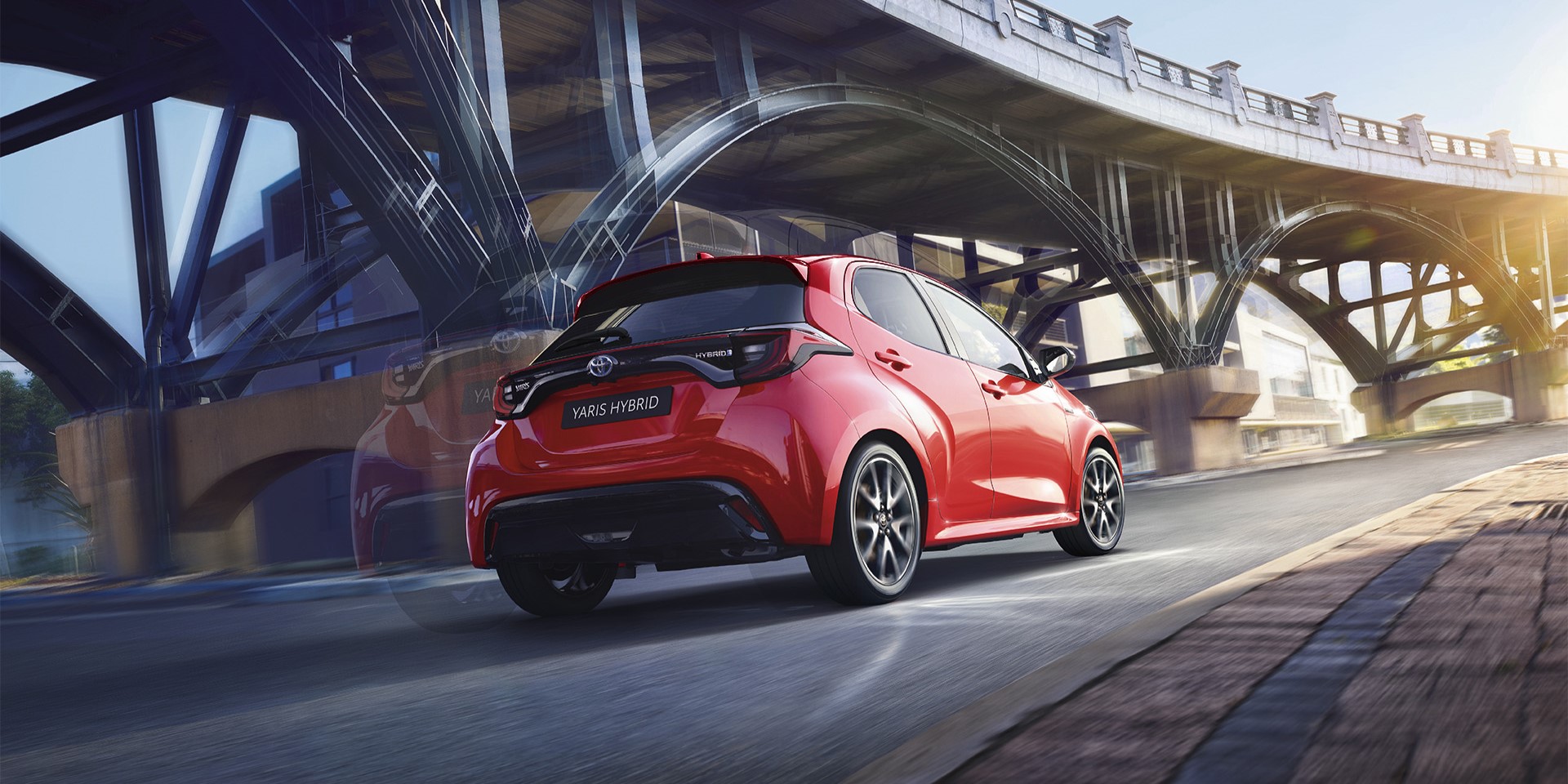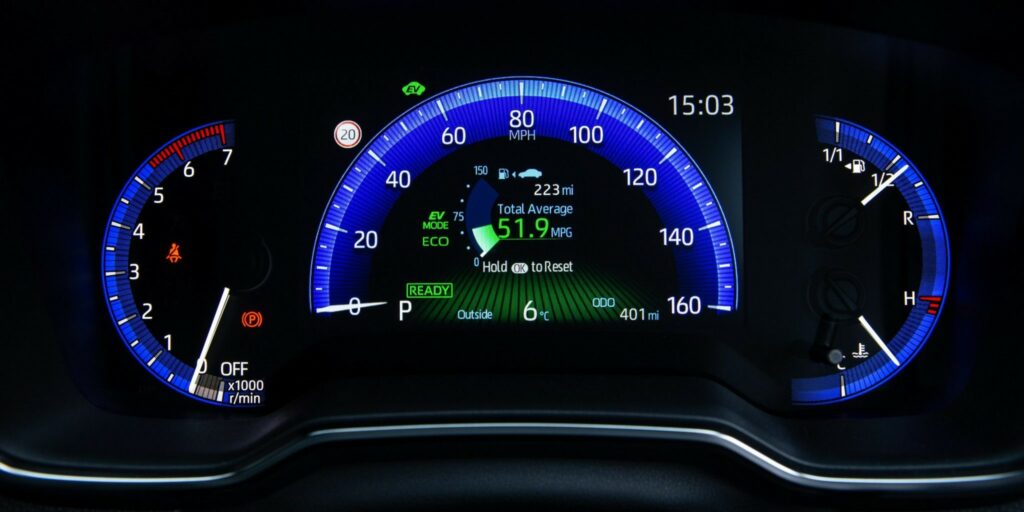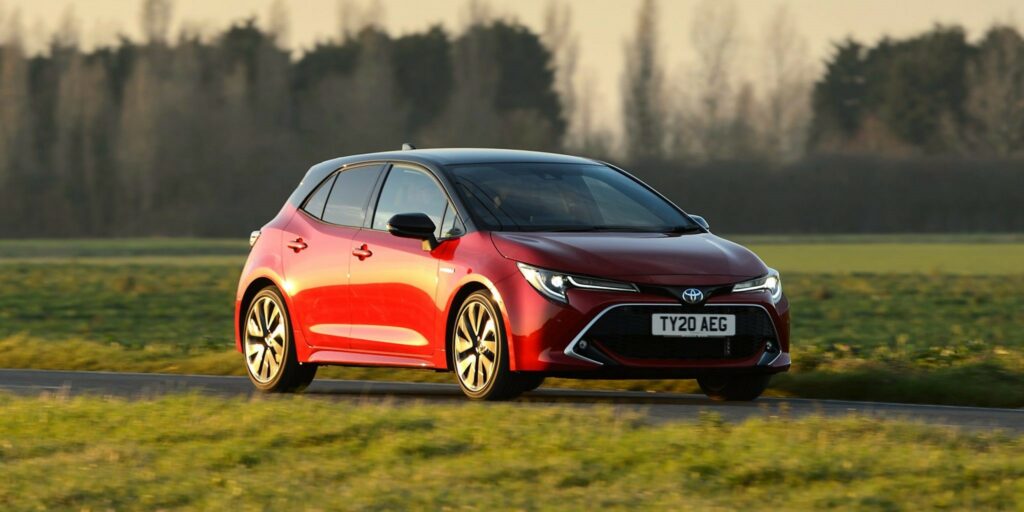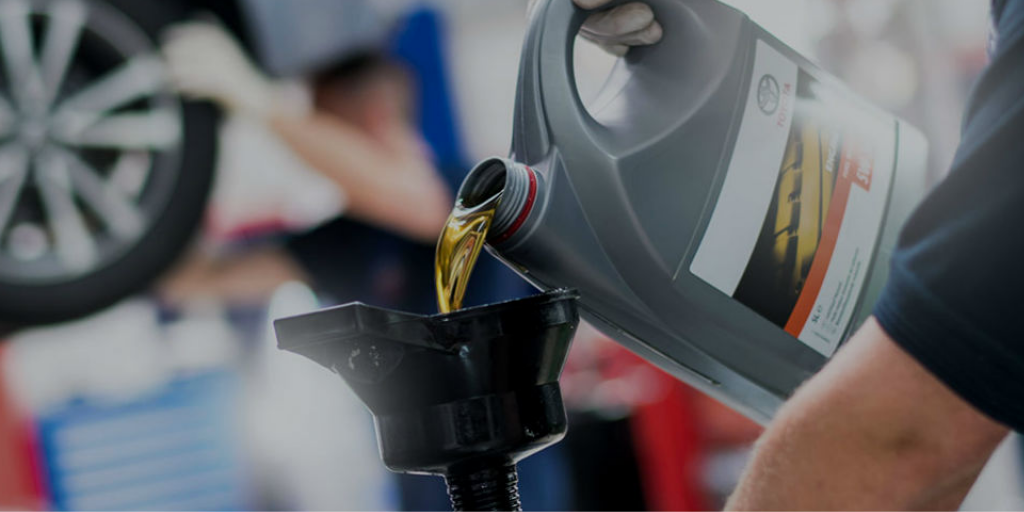Toyota hybrids are today a very common sight in Malta. Yet, despite their popularity, there are several misconceptions and myths around owning a hybrid vehicle that might deter some people from buying them. In this article, we cover some of the most popular myths around hybrid cars and whether they’re true or not.
From concerns about range limitations to misconceptions about battery life and longevity, whether you’re considering a hybrid for longer journeys or city driving, we address the myths and provide you with factual information that you can use to make informed decisions about your next car purchase. Once you’re ready to take the leap, check out our available stock of Toyota hybrid cars here!
Table of Contents

Myth 1 – Hybrids can’t go as far as cars with traditional engines
This simply isn’t true due to the way that hybrids work – in fact, it’s more likely that a hybrid can actually go farther than the equivalent petrol-powered car. This is because a hybrid has the same petrol engine that would be in a normal car, as well as an electric motor. The petrol engine only kicks in when needed – for example, the Toyota Yaris can be driven around town under 80km/h on pure electric mode, without using the petrol engine at all.
When the speed is high enough to require more power, or if the battery drains to the point where it can’t provide adequate power, the petrol engine will kick in to provide forward motion.
In Malta and Gozo, where stop-start urban driving is the norm, owning a car like the Yaris will mean very infrequent fuel stops and a considerably larger range than that of a petrol-powered equivalent car.
Myth 2 – Hybrid cars will not operate if the hybrid battery goes flat
This is a common misconception among those who don’t understand the way a self-charging hybrid car works. A hybrid such as the Yaris is fitted with a regular combustion engine (petrol) and an electric motor. The electric motor is designed to assist the petrol engine by providing power to the wheels when it has enough charge. In the event that the car is driven too fast for the electric motor and battery to provide enough power, or if the battery has drained and needs to be recharged, the petrol engine kicks in.
Therefore, in a self-charging hybrid like the Yaris, you’ll never be in a situation where you have a flat battery, because when the level of charge drops low enough, the petrol engine will turn itself on and charge the battery. Even if the battery was completely dead, the petrol engine would provide power to the wheels exactly as it would in a normal combustion engine car. You will never have a situation where the battery being flat means that the car will stall and be undriveable.
Myth 3 – You need a home charger to have a hybrid car
This isn’t true at all, particularly if you buy a self-charging hybrid. A self-charging hybrid never needs to be plugged into a car charger – so you simply don’t need one. When the battery runs down to the point where it needs to be charged up, the charging is done automatically by the petrol engine.
A plug-in hybrid is similar but instead of the petrol engine charging the battery, the car will need to be plugged in when the battery runs flat. However, you don’t even necessarily need to have a home charger in this situation – the electric-only range of a plug-in hybrid will be lower than that of a pure electric vehicle and so will take far less time to charge. Even if the battery is dead and you can’t find a place to charge it, the car will just function as a conventional car until the battery is charged, at which point the electric motor will work again. It’s important to note, however, that this isn’t ideal for the battery, so you should avoid doing this for long periods of time.

Myth 4 – Hybrids are more expensive to service
While many believe that hybrid cars are grossly more expensive to service than conventional petrol-powered vehicles, the truth is that they are only slightly more expensive despite having both a petrol engine and battery to maintain. This is because even though there are more checks performed during a hybrid service, the frequency of replacement for its components is less than that of standard petrol engines. Generally, the battery and electric motor will be checked usually by plugging in a diagnostic machine and reading for any potential fault codes, as well as a visual inspection of the car to check that everything looks as it should.
In fact, long term maintenance costs for hybrids are likely to actually be lower than petrol or diesel vehicles. Hybrids will experience less wear on their engines (particularly in an urban environment like Malta) as well as less wear on their brakes (due to regenerative braking), which leads to less frequent replacement of key components – saving you money.
Myth 5 – The batteries in hybrid cars don’t last long
There is a modicum of truth in this, but in the sense that it’s because people aren’t using their hybrid cars properly. The most important thing you need to understand about a hybrid car is that it needs to be driven. With a conventional petrol or diesel car you could park it up in your garage for six months and, providing there was enough charge in the battery, the car would be absolutely fine to run again and there wouldn’t be any degeneration in performance. However, this isn’t the case with a hybrid car.
A hybrid car has a battery system which is susceptible to degeneration if left standing for long periods of time. All batteries will self-discharge if not used, and if your hybrid battery discharges too much, it can lose the ability to hold charge effectively, leading to reduced battery performance or even requiring a costly replacement. This is largely where this myth comes from, and this would be considered neglect by most dealerships.
The good news, however, is that if the car is used regularly as intended, there is absolutely no reason why a hybrid can’t reach the same mileage as a traditional petrol or diesel powered car. In fact, hybrids are likely to last longer – a hybrid’s petrol engine won’t be used as much as a traditional car and it’s not unheard of for hybrids to reach mileage beyond 300,000kms without any significant issues or battery degeneration.
What’s more, we are so confident in the longevity and reliability of our hybrid batteries that we offer Hybrid Battery extended cover, which means that the car’s original service plan can be extended every year for up to five years, up to the 15th anniversary of the car’s registration or up to 160,000km. This means that even in the extremely unlikely event that the battery was to degrade in that time, repairs would be taken care of at no cost to you.
Myth 6 – Hybrids are only for city driving and aren’t useful on longer journeys
This actually couldn’t be further from the truth – a hybrid is the absolute best type of vehicle if you do a mix of longer journeys and shorter journeys. In town and in stop-start traffic, a hybrid will usually run on pure electric mode, which is better for the environment and means that no wear and tear is placed on the petrol engine. However, during longer journeys, the petrol engine will kick in and will take over from the electric motor.
Consistent, sustained running like this is better for a petrol engine as it ensures the oil gets up to temperature. Contrast this with an electric car, which is great around town but reduces its range significantly with sustained running at high speeds, or a petrol or diesel car which is great at high-speed running but are far less environmentally friendly around town.

FAQs
How do hybrid vehicles perform in very warm temperatures like we have in Malta?
Hybrid cars are designed to operate efficiently across a range of temperatures and environmental conditions, from very cold to very warm. While Malta is a very warm country, and battery performance can be affected by extreme heat, this is well within the operating limits of most hybrid vehicles and really isn’t something you should worry about.
Is the driving experience of a hybrid significantly different to a regular car?
Generally, no – the main thing you should consider is that hybrids always have an automatic transmission, so if you are used to a manual this would be the main difference in driving experience. Hybrids also have regenerative braking which regular cars do not have, so you will likely notice a difference in pedal feel compared to your normal car. Everything else is likely to be a positive change, however – a hybrid will be smoother, quieter, more fuel efficient, and more reliable.
What enhancements in hybrid technology can we expect in the future?
Future enhancements in hybrid technology will likely focus on increasing efficiency, performance, and environmental friendliness. As the car industry evolves, driven by enhancements in technology, there will likely be several key elements in the development of hybrid vehicles – improved battery technology that can hold more energy, meaning hybrids will have longer electric driving ranges, as well as faster charging, more efficient internal combustion engines, and weight reduction.


